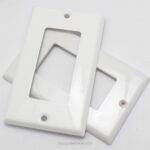Comparing two things requires specific language. One common point of confusion is choosing between “then” and “than.” Understanding the distinct roles of these words is crucial for clear and effective communication. This article will delve into the differences between “then” and “than,” providing clear examples to guide you in using them correctly.
Than: The Word for Comparisons
“Than” is a conjunction or preposition used to introduce the second element in a comparison. It signifies a difference or inequality between two things.
Examples:
- Comparison of Adjectives: My car is faster than yours. This sentence compares the speed of two cars, establishing that one is faster.
- Comparison of Nouns: She has more experience than he does. This compares the amount of experience between two people.
- Expressions of Preference: I would rather walk than drive in this traffic. Here, “than” introduces the less preferred option.
- Exception: No one other than authorized personnel can enter. In this case, “than” signifies an exception.
Then: Indicating Time or Sequence
“Then” functions as an adverb, indicating time, sequence, or consequence. It signifies when something happens or the order in which events occur.
Examples:
- Time: We went to the store, and then we went home. This sentence outlines a sequence of events.
- Consequence: If you finish your homework, then you can play video games. “Then” introduces the consequence of completing homework.
- At That Time: Things were different back then. This refers to a past period.
- In Addition: The food was delicious, and then there was the dessert! Here, “then” adds another point to the narrative.
Remembering the Difference: Simple Tricks
Remembering when to use “than” and “then” can be easy with these helpful tricks:
- Than for Comparisons: Associate the a in “than” with comparisons. If you’re comparing something, use “than.”
- Then for Time/Sequence: Associate the e in “then” with time and sequence, when something happens or the order of events. If you are talking about when something happened, use “then.”
Than vs. Then: Applying the Knowledge
Let’s solidify your understanding with a few more examples:
-
Incorrect: The movie was better then the book.
-
Correct: The movie was better than the book. (Comparison)
-
Incorrect: I ate dinner, than went for a walk.
-
Correct: I ate dinner, then went for a walk. (Sequence)
By understanding these simple rules and applying the helpful tricks, you can confidently use “than” and “then” correctly in your writing and speech. Mastering this distinction will enhance your communication skills and ensure clarity in your message.
